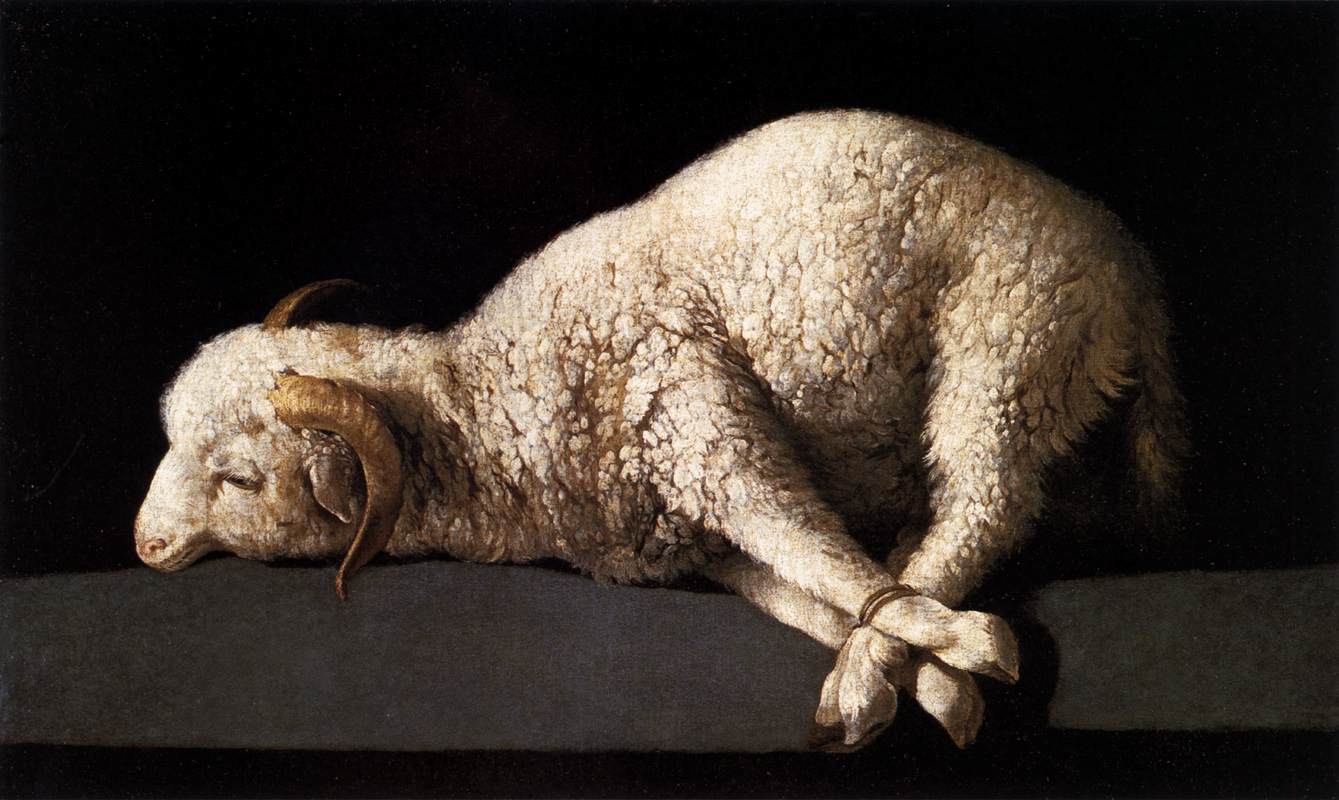Reading Time: 4 minutes
“Again the next day John was standing with two of his disciples, and he looked at Jesus as He walked, and said, “Behold, the Lamb of God!” – John 1:35-36
So, here we are again.
Another Easter is upon us, and with it, another opportunity for those who profess to believe in Jesus Christ to sweep the significance of the season under the rug until this time next year.
That’s exactly what we do oftentimes, isn’t it?
I mean, let’s be honest.
Then, again, I guess it’s no surprise when you really think about it.
Two thousand years after His death, burial and resurrection, we Christians have settled into referring to the account of Christ’s redemptive suffering simply as the “Easter Story” and, consequently, relegated the preaching and study of the spiritual implications and ramifications of the most important event in all of human history to a particular time of year, as if it were merely an occasion to be acknowledged on a calendar each year.
In just a few days from now, pews in countless churches across America and around the world will be filled to overflowing, with believers and unbelievers alike, to once again blow the dust off, if you will, the all-too-familiar story of how “Jesus paid it all.” And once this year’s Easter sermons are over, never to revisit the subject again until the appointed time – 365 days later.
I can only imagine that our occasioned silence about the most significant event in all of world history must grieve the heart of God.
That we would treat so casually the unimaginable humiliation which God Himself, in the person of His only begotten Son, volitionally chose to endure on our behalf is an inexcusable affront to the One who created us to know Him and live eternally with Him.
. . . do you know and confess that, as you were by nature, you were a child of wrath, dead in trespasses and sins? And that were it not for the grace of God in Jesus Christ, were it not for His atoning, sacrificial, substitutionary death you would still be in that position? Do you know that He died for you, gave Himself for you and for your sins, and that by the power of His Holy Spirit He has regenerated you, has quickened you, has raised you from the death of sin; and that you are seated even now in the heavenly places with Christ, because you are in Him and joined to Him, by the grace of God?
– D. Martyn Lloyd Jones
In the text in John 1 (above), John the Baptist refers to Jesus as “the Lamb of God.”
In speaking of Jesus in terms of a “lamb“, John is metaphorically granting us insight into the divine role, purpose and mission of Jesus in God’s predestined redemptive plan for mankind. That is, He is to be the Christ, the One who, “like a lamb to the slaughter“, would be the propitiation for the sins of the whole world on the cross.
Jesus Christ is the Lamb of God not only during the “season” of Easter, but every day of our lives. Meaning, His propitiatory death is to be treated as an ever-present reality within the body of Christ, the church.
And yet, the church today seems to have become comfortable with treating this message as an occasional one to be delved into only on a specific date, as if the significance of Christ’s death is not just as worthy of being preached in February or August or October as it is in March or April (depending on when Easter falls on the calendar.)
That those of us who profess to know and love God would relegate this wondrous truth to a single date on a calendar speaks, I believe, to the extent to which we neither understand nor appreciate the depths of what Christ’s death means; not only in terms of our eternal destiny but also as it relates to how we live our daily lives.
But, sadly, like so many other aspects of the Christian faith, what we practice doesn’t actually penetrate us to the extent that it becomes a way of life for us in our thoughts, words and actions.
It is in and by Christ that we have righteousness: it is by being in Him that we are justified, have our sins pardoned, and are received as righteous into God’s favor. It is by Christ that we have sanctification: we have in Him true excellency of heart as well as of understanding; and he is made unto us inherent as well as imputed righteousness. It is by Christ that we have redemption, or the actual deliverance from all misery, and the bestowing of all happiness and glory. Thus, we have all our good by Christ, who is God.
– Jonathan Edwards
If it is only during Easter that the church focuses on the Atonement, then, what is the church preaching the other 51 Sundays of the year?
For the Christian, the death, burial and resurrection of Jesus Christ, the Lamb of God, is effectual every millisecond of every single day, not just during one season of the year. Besides, once Easter has passed on the calendar, the logical question becomes, “Okay? Now what?”
That God Himself, in the Person of His Son, Jesus Christ, suffered on behalf of those who believe in Him is a message that deserves more than the seasonal attention we who follow Him are inclined to give it; and it’s time we stopped being so silent about it.
DBH
References:
- David Martyn Lloyd-Jones, God’s Way of Reconciliation (Studies in Ephesians, Chapter 2), Grand Rapids: Baker Book House, 1972, p. 347.
- Jonathan Edwards, God Glorified in Man’s Dependence, preached on the Public Lecture in Boston, MA, July 8, 1731.
Related:
- Jesus Christ: the Lamb of God by RC Sproul
- The Lamb of God by Derek Thomas
- What Does It Mean That Jesus Is The Lamb of God? gotquestions.org
- The Need for Atonement Ligonier Ministries


As we celebrate the resurrection of our Lord Jesus Christ may we ever be mindful of the great opportunity that has been given to us.
I realize there is a tendency to rebuke those who seem to only attend services at Christmas and Easter.
Look, if they come…it is a blessing. If they are lost, get a phone number, or address, and follow up with a visit as soon as possible. If they are saved…do the same! We are commanded to redeem the time!
See then that ye walk circumspectly, not as fools, but as wise, Redeeming the time, because the days are evil. Wherefore be ye not unwise, but understanding what the will of the Lord is.
Let us be wise and grasp every opportunity to witness and present the Gospel to a lost and dying world.
Anyone can rest on their laurels (i.e. backside) when speaking of those who seem to only attend the Christmas and Easter worship services.
May we all do as we are instructed: To whom God would make known what is the riches of the glory of this mystery among the Gentiles; which is Christ in you, the hope of glory: Whom we preach, warning every man, and teaching every man in all wisdom; that we may present every man perfect in Christ Jesus:
Brother Dave,
Thank you for taking the time to read and comment on my blog post. I do appreciate it.
In reading your thoughts, perhaps the context of the article did not come across as clearly as I intended, and for that, I apologize. So, please allow me to add some clarity.
The blog is not about church attendance. Not at all. Conversely, it is not a rebuke of those who may or may not attend church only on Easter (or Christmas, for that matter). God bless anyone who attends a church, however infrequently, where the Truth of the Gospel is preached. So, you and concur in that regard. That said, again, the blog is not about who attends church or how often. Church attendance is not salvific, so that’s not the issue, as I see it.
If anything, the article is a self-critique of people like myself who, as you put it, have a tendency to “rest on our laurels” when it comes to how we treat the significance of the death, burial and resurrection of Christ to the extent that we pay attention to it only once a year. The question is, on whose laurels are we resting? Our own? Or Christ’s?
In my opinion, to “rest” on either is a sad commentary on us as believers.
Thanks, again, for your feedback.
In the love of Christ,
Darrell